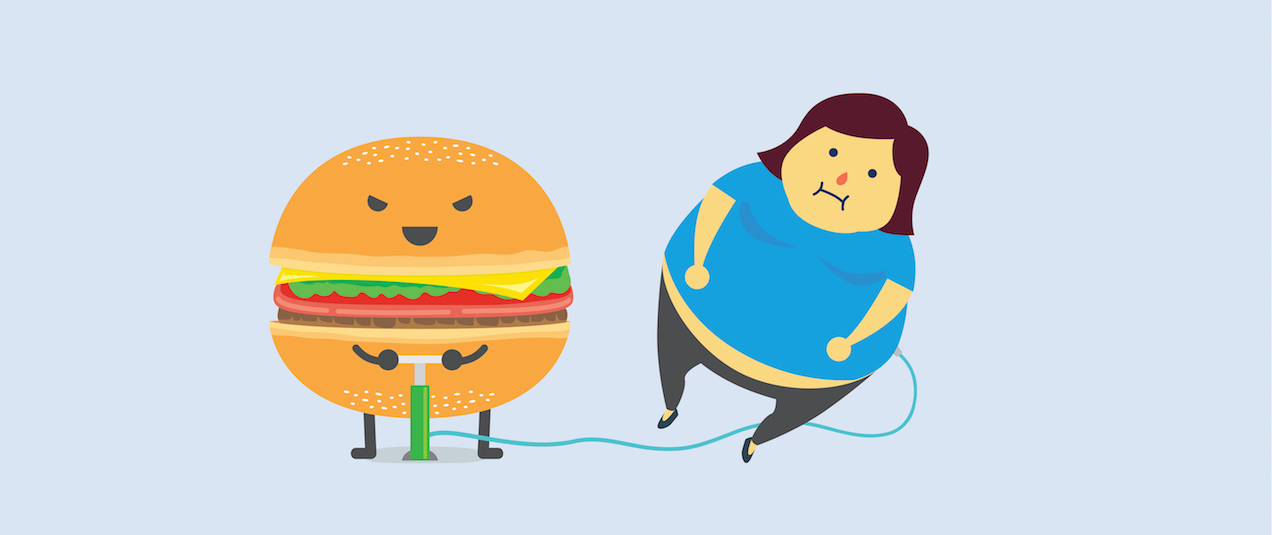Off the coast of Japan, you will meet the people of Okinawa. It’s a tiny island. What makes Okinawa special is that its people live to the age of 100 more than anywhere else in the world. Okinawa also has the oldest living female population and the longest disability-free life expectancy. Their secret? It seems to be the foods they eat.
The fountain of youth
The facts don’t lie: people today are fatter and unhealthier than ever. Our food is packed with additives and enhanced substances. Too often we choose fast food over nutritious fare, and subsequently, cancer, obesity, and other diseases are spiraling out of control. An urban diet is characterised as one that focuses on “Western” food (burgers, pizzas, convenience meals), and one that has very little exercise.
A 2015 study by the University of Minnesota focused on global trends in diet choices and what these choices mean for our health. “People around the world, as incomes go up, choose more calories and meat in their diet,” said the study. The result is disastrous consequences on health and an increased risk of disease. “We have a whole new group of people who are malnourished because they eat foods that are no good for them, that have no nutritional benefit. The trend contradicts the more traditional causes of malnutrition.”
Edited food
Processed foods are items like canned food and fruit, frozen veggies, cereals, bottled baby food – basically anything that’s been deliberately changed so it lasts longer, or so that it has better taste. This generally means freezing and drying food to preserve it, and it can be a massive part of your grocery list, from a bottle of tomato sauce, cooking oil, packaged pasta, to breakfast cereals, biscuits, cold meat, cheese spreads, soft drinks, ready-made frozen meals and so on.
In general, processed foods are safe; in that they aren’t going to cause immediate danger. What is happening however is that processed foods – and the sheer quantity of it in our daily diets – are causing long-term harm.
Processing ourselves to death
So, studies have shown that one of the main contributors to disease today, is not necessarily this or that type of food, but the fact that this and that food is edited, processed, and changed so much, that it becomes unhealthy. Such as:
- A sweetened soft drink has 55 grams of sugar per serving. That’s about 11 teaspoons of sugar in one can! Our daily limit is only six teaspoons. Not coincidental then, that diabetes is on the rise in South Africa.
- Processed foods are packed with sodium. What’s wrong with too much salt? Blame it for high blood pressure, stroke, osteoporosis, stomach cancer and heart failure.
- The colour of your frozen macaroni and cheese? Say thanks to colourants. Only problem is that those artificial ingredients can cause allergies, diabetes and has been linked to cancer.
- Many processed foods are stripped of their nutrients and fibre content, making them nutritionally unsatisfying, and too quick to digest. Shortly after a meal of processed foods, your brain could send out another message that it’s still hungry. Fibre, which takes longer to digest, is found in unrefined plant foods, and if someone is living on a diet of hotdogs, chips and fizzy drinks, they’re getting very little of it. So the brain sends out another message signalling hunger – and often more fast food is conveniently at hand to fill the gap and expand the waistline.
The long-life diet
And then, there are the Okinawans still thriving and living to over 100 years. Take a leaf from their diet:
- It’s mostly plant-based; meals are filled with essential vitamins and minerals, and high in disease-fighting antioxidants. Vegetables tend to be a big part of every meal, not an afterthought.
- It’s packed with good sources of protein, like fish. Oily fish, like salmon, mackerel and tuna, are rich in Omega-3 fatty acids, which is vital for brain and heart health.
- The Okinawan diet is naturally low in calories. Calorie restriction helps maintain a healthy weight, and protects against illnesses such as heart disease, diabetes and cancer.
References
- https://www.hsph.harvard.edu/nutritionsource/salt-and-sodium/sodium-health-risks-and-disease/
- The Harvard School of Public Health (http://www.hsph.harvard.edu/obesity-prevention-source/obesity-causes/diet-and-weight/)
- The US National Institutes of Health (http://www.nih.gov/researchmatters/july2011/07112011weight.htm)
- http://www.healthy-eating-politics.com/processed-foods.html

